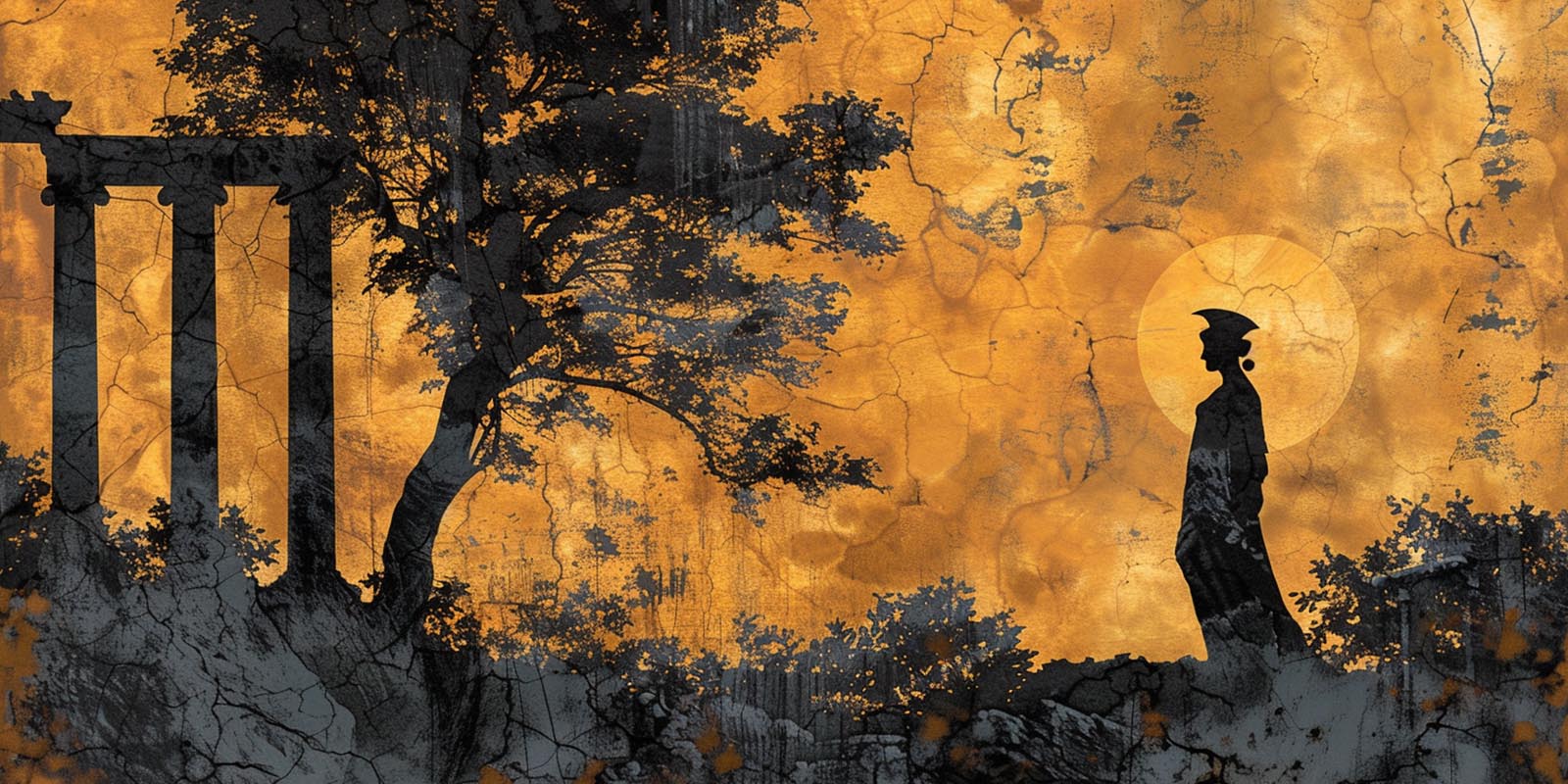

The Mysteries of Demeter at Eleusis, also known as the Eleusinian Mysteries, were one of the most important and secretive religious rites in ancient Greece. Celebrated in honor of Demeter and her daughter Persephone, these mysteries were held annually at Eleusis and were renowned for their profound spiritual significance and the promise of a blessed afterlife for initiates. The rituals and ceremonies of the Eleusinian Mysteries remained a closely guarded secret, adding to their mystique and allure.
Origins and Mythology: The Eleusinian Mysteries were based on the myth of Demeter and Persephone. According to the myth, Persephone was abducted by Hades, the god of the underworld, causing Demeter, the goddess of agriculture, to mourn and neglect the earth, leading to a barren world. After a compromise was reached, Persephone was allowed to return to the surface for part of the year, symbolizing the cycle of life and death, and the changing seasons. This myth formed the core of the Eleusinian Mysteries, representing themes of life, death, and rebirth.
Initiation and Rituals: The Eleusinian Mysteries involved a series of initiation ceremonies divided into the Lesser Mysteries and the Greater Mysteries. The Lesser Mysteries, held in the spring at Agrae, were preparatory rites for the Greater Mysteries, which took place in the fall at Eleusis. The initiation process included purification rituals, fasting, and participation in secret ceremonies. The climax of the initiation was the "epopteia," where initiates experienced a direct and profound revelation of the divine, believed to offer insights into the afterlife and a deeper understanding of existence.
The Greater Mysteries: The Greater Mysteries lasted for nine days and included various stages of initiation. The ceremonies began in Athens with a procession to Eleusis, during which initiates carried sacred objects. Upon arrival, participants underwent further purification, followed by a series of rites and rituals conducted within the Telesterion, the main hall of initiation. The exact nature of these rituals remains unknown, but they were believed to involve dramatic reenactments of the Demeter-Persephone myth, culminating in a mystical experience that transformed the initiate's perception of life and death.
Significance and Impact: The Eleusinian Mysteries were highly regarded and attracted participants from across the Greek world, including notable figures such as Plato and Aristotle. The mysteries offered initiates the hope of a blessed afterlife and a sense of spiritual renewal. The profound personal transformation experienced by initiates had a lasting impact on their lives, influencing their worldview and fostering a deep sense of connection with the divine. The Eleusinian Mysteries also played a role in promoting social cohesion and shared cultural identity among the Greeks.
Priesthood and Sacred Objects: The administration of the Eleusinian Mysteries was overseen by a hereditary priesthood, including the Hierophant, the chief priest responsible for revealing the sacred objects and leading the rituals. Other key figures included the Dadouchos (torchbearer) and the Priestess of Demeter. Sacred objects, known as "hiera," were central to the ceremonies and were kept in the Anaktoron, a sacred space within the Telesterion. These objects were only revealed to the initiates during the climax of the rituals, contributing to the mysteries' secrecy and spiritual power.
Archaeological Findings: Excavations at Eleusis have uncovered significant archaeological remains, including the Telesterion, the Sacred Way, and various temples and altars. These findings provide valuable insights into the architectural and ceremonial aspects of the Eleusinian Mysteries. Artifacts such as votive offerings, inscriptions, and reliefs depict scenes related to the Demeter-Persephone myth, offering glimpses into the religious practices and beliefs associated with the mysteries.
Legacy: The Eleusinian Mysteries left a lasting legacy in ancient Greek religion and beyond. They influenced later religious and philosophical thought, including the development of mystery religions in the Hellenistic and Roman periods. The themes of life, death, and rebirth explored in the mysteries resonate with various spiritual traditions and continue to inspire interest and scholarly study. The legacy of the Eleusinian Mysteries underscores their significance as a profound and transformative religious experience in the ancient world.

The Eleusinian Mysteries were held annually for over a millennium, from approximately 1600 BCE until the 4th century CE. Despite their long history, the exact details of the rituals and ceremonies remain largely unknown due to the strict vow of secrecy observed by the initiates.
Ancient Greek art and architecture, with its harmonious proportions and timeless elegance, continue to inspire awe and admiration millennia later.
Discover
Greek mythology, a rich tapestry of gods, heroes, and mythical creatures, captivates the imagination with its tales of love, betrayal, and epic adventures that delve into the depths of the human psyche.
Discover
Ancient Greek history, marked by remarkable achievements in democracy, philosophy, and warfare, shaped the foundation of Western civilization, leaving an indelible legacy of innovation and cultural influence that continues to resonate to this day.
Discover
The ancient Greek Olympics, held in Olympia every four years, celebrated athleticism, unity, and cultural pride, serving as a testament to the enduring spirit of competition and excellence that transcends time and borders.
Discover
Ancient Greek wars, such as the Persian Wars and the Peloponnesian War, were pivotal conflicts that shaped the course of history, highlighting the struggle for power, independence, and the clash of civilizations in the ancient Mediterranean world.
Discover
Ancient Greek culture and society, characterized by its emphasis on art, philosophy, and civic engagement, fostered a vibrant intellectual and social landscape where innovation flourished, democracy thrived, and the pursuit of knowledge and excellence was celebrated as fundamental values of civilized life.
Discover
Find out more about ancientgreece.com